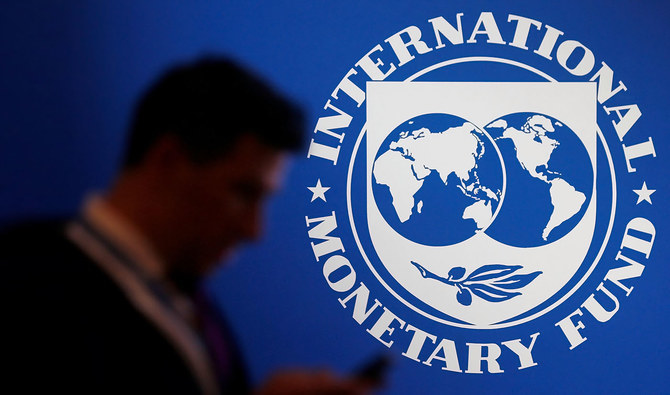DHAKA: Bangladesh has sought a $4.5 billion loan from the International Monetary Fund, the Daily Star newspaper reported on Tuesday, joining South Asian neighbors Pakistan and Sri Lanka in seeking help to cope with mounting pressure on their economies.
Known for its big garment-exporting industry, Bangladesh has sought the funds for its balance of payment and budgetary needs, as well as for efforts to deal with climate change, the Daily Star reported, citing documents it had seen.
It said Finance Minister AHM Mustafa Kamal wrote to IMF Managing Director Kristalina Georgieva on Sunday.
Officials at the finance ministry and the office of the IMF in Bangladesh did not immediately respond to requests for comment.
The Bangladesh Bank recently announced a policy to preserve dollars by discouraging imports of luxury goods, fruit, non-cereal foods, and canned and processed foods.
The bank’s foreign-exchange reserves fell to $39.67 billion as of July 20 — sufficient for imports for about 5.3 months — from $45.5 billion a year earlier.
Remittances from overseas Bangladeshis fell 5 percent in June to $1.84 billion, the central bank said, as many migrant workers lost their jobs because of the COVID-19 pandemic and many of them could not get home because of the travel disruption is caused.
Elsewhere in South Asia, Sri Lanka is facing its worst economic crisis in seven decades while Pakistan’s foreign exchange reserves are depleting rapidly.
The region’s economies have been hit particularly hard by the Ukraine war, which has raised the cost of fuel and other essential imports.
Bangladesh’s July to May current account deficit was $17.2 billion, compared with a deficit of $2.78 billion in the year-earlier period, according to central bank data.
In the first 11 months of the fiscal year that ended on June 30, imports jumped 39 percent but exports grew 34 percent.
Bangladesh joins Pakistan and Sri Lanka in seeking IMF loan to tackle economic crises
https://arab.news/bg83a
Bangladesh joins Pakistan and Sri Lanka in seeking IMF loan to tackle economic crises

- Pakistan and Sri Lanka are also seeking help to cope with mounting pressure on their economies
- Remittances from overseas Bangladeshis fell 5 percent in June to $1.84 billion, the central bank said
Suicide bomber kills at least five at wedding in northwest Pakistan

- Attack took place in Dera Ismail Khan, targeting the home of a local peace committee member
- Peace committees are community-based groups that report militant activity to security forces
PESHAWAR: A suicide bomber killed at least five people and wounded 10 others after detonating explosives at a wedding ceremony in northwestern Pakistan on Friday, officials said, in an attack that underscored persistent militant violence in the country’s restive Khyber Pakhtunkhwa province.
The blast took place at the home of a local peace committee member in Dera Ismail Khan district, where guests had gathered for a wedding, police and emergency officials said.
Peace committees in the region are informal, community-based groups that work with security forces to report militant activity and maintain order, making their members frequent targets of attacks.
“A blast occurred near Qureshi Moor in Dera Ismail Khan. Authorities have recovered five bodies and shifted 10 injured to hospital,” said Bilal Faizi, a spokesman for the provincial Rescue 1122 emergency service, adding that the rescue operation was ongoing.
Police said the attacker blew himself up inside the house during the ceremony and that the bomber’s head had been recovered, confirming it was a suicide attack.
Several members of the local peace committee were present at the time, raising fears the toll could rise.
District Police Officer Sajjad Ahmed Sahibzada said authorities had launched an investigation into the incident, while security forces sealed off the area.
Militant attacks have surged in parts of Khyber Pakhtunkhwa after the Taliban returned to power in neighboring
Afghanistan in 2021, with the administration in Islamabad blaming the Afghan government for “facilitating” cross-border attacks targeting Pakistani civilians and security forces. However, Kabul has repeatedly denied the allegation.
Khyber Pakhtunkhwa has also seen frequent intelligence-based operations by security forces targeting suspected militants.
No group has immediately claimed responsibility for Friday’s attack.










